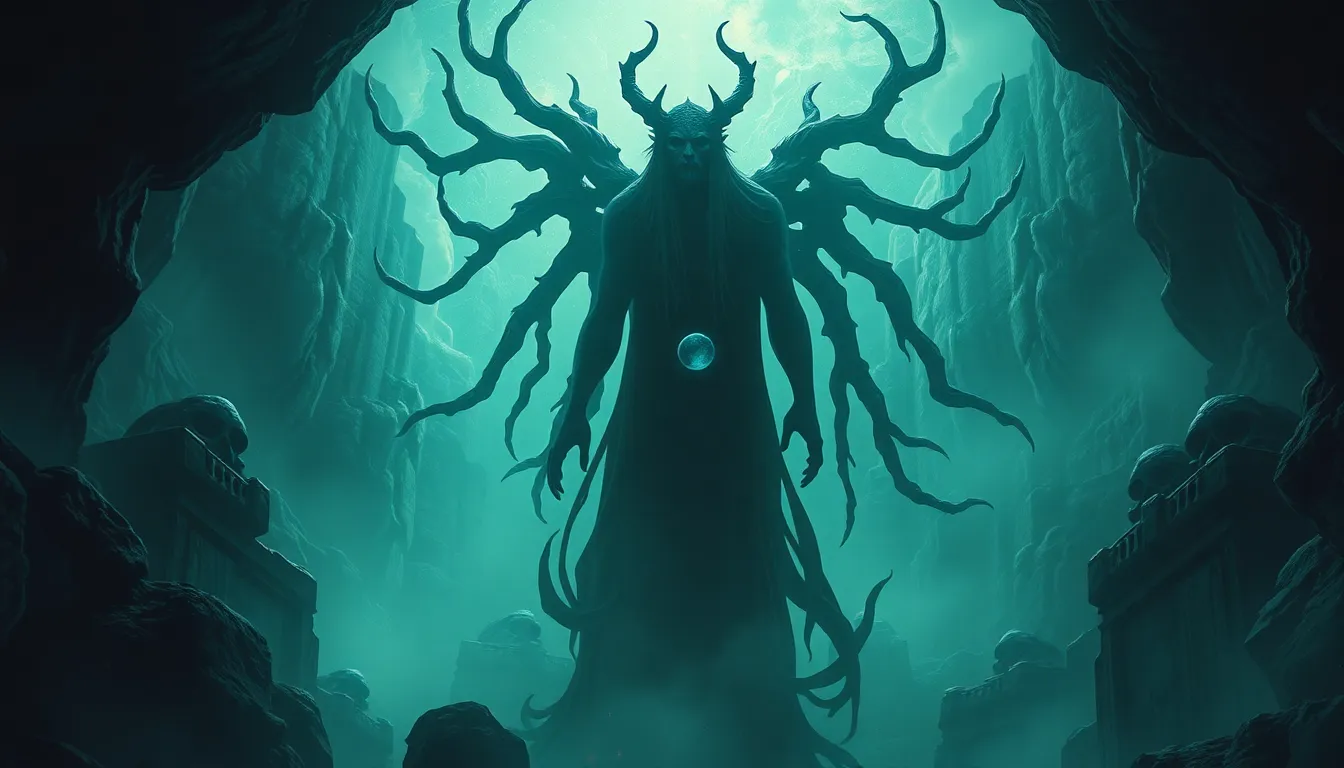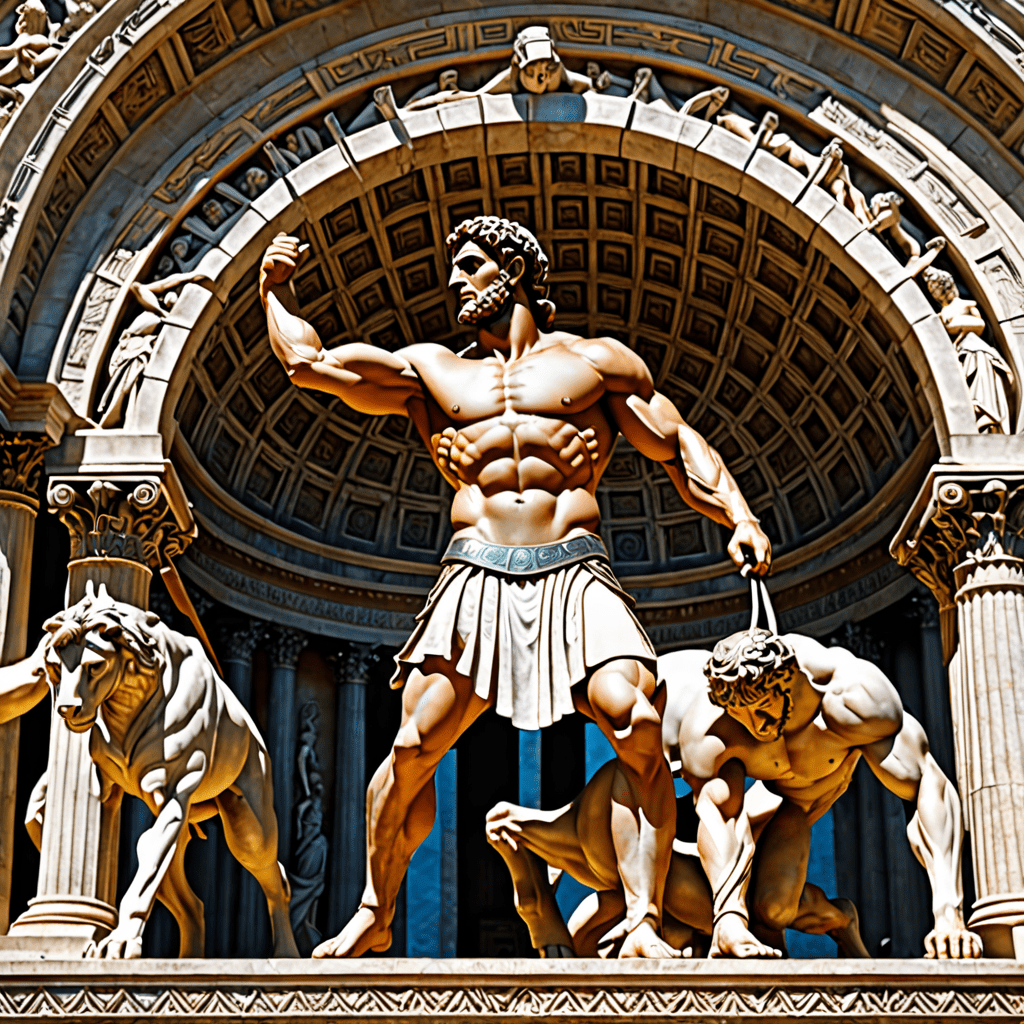Underworld Myths: The Stories That Haunt Our Dreams
Introduction to Underworld Myths
Underworld myths are narratives that explore the realm of the dead, often inhabited by deities, spirits, and the souls of the deceased. These stories have been significant across various cultures, serving as a means to understand the mysteries surrounding life and death. From ancient civilizations to modern societies, underworld myths provide insights into human fears, ethical dilemmas, and the hope of an afterlife. This article delves into the origins, cultural variations, common themes, and enduring influence of underworld myths in shaping our collective psyche.
The Origins of Underworld Myths
The emergence of underworld narratives can be traced back to the earliest civilizations, where the unknown afterlife prompted the creation of myths to explain it. In ancient cultures, the underworld often represented a chaotic and dark place, ruled by powerful deities. Notable figures in these myths include:
- Hades: The Greek god of the underworld, ruling over the souls of the dead.
- Osiris: The Egyptian god of the afterlife, associated with resurrection and eternal life.
- Yama: The Hindu god of death, who guides souls to their next existence.
These deities not only governed the afterlife but also symbolized the cultural understandings of death and rebirth, offering pathways for the living to navigate their mortality.
Cultural Variations in Underworld Depictions
Different cultures have distinct interpretations of the underworld, reflecting their unique beliefs and values. For instance:
- Greek Underworld: Depicted as a complex realm with various regions like the Elysian Fields for the virtuous and Tartarus for the wicked.
- Egyptian Underworld: Centered around the concept of judgment, where the heart of the deceased is weighed against the feather of Ma’at to determine their fate.
- Hindu Underworld: Features a cycle of reincarnation, where souls undergo various life forms based on their karma.
Additionally, indigenous cultures often possess unique underworld myths that reflect their environmental and spiritual contexts, offering rich tapestries of beliefs surrounding death and the afterlife.
Common Themes in Underworld Myths
Underworld myths frequently explore several recurring themes that connect humanity’s understanding of death:
- The Journey of the Soul: Many myths depict the soul’s journey after death, involving trials, judgment, and eventual entry into the afterlife.
- The Role of Morality and Ethics: These stories often emphasize the consequences of one’s actions in life, shaping the fate of the soul in the afterlife.
Such themes resonate deeply with human experiences, as they reflect our innate concerns about morality, justice, and the unknowns of what lies beyond death.
Underworld Myths in Literature and Art
Throughout history, underworld myths have inspired countless literary works and artistic representations. Some notable examples include:
- Dante’s “Inferno”: A vivid depiction of the Christian interpretation of hell, showcasing the consequences of sin through imaginative storytelling.
- Hieronymus Bosch’s Paintings: His artworks often incorporate surreal imagery of the afterlife, reflecting the fears and moral lessons of his time.
These representations have not only enriched cultural narratives but also influenced popular culture, with modern storytelling in films, books, and video games frequently drawing on underworld themes to explore complex human emotions and fears.
Psychological Interpretations of Underworld Myths
Psychologists often explore why underworld myths resonate so profoundly with humans. Theories suggest that:
- These myths tap into the collective unconscious, where archetypes and symbols related to death and the afterlife reside.
- Dreams featuring underworld figures may reflect our anxieties about mortality, unresolved issues, or aspirations for redemption.
Such interpretations reveal the psychological depth of these myths, indicating that they serve not just as stories, but as reflections of our inner struggles and desires.
Underworld Myths and Their Influence on Modern Society
The influence of ancient underworld myths is evident in contemporary society, shaping our views on death and the afterlife. Many modern media, including:
- Films such as “The Seventh Seal” and “Coco,” which explore themes of mortality and remembrance.
- Video games like “God of War,” which incorporate mythological elements of the underworld and the consequences of choices.
These narratives reflect society’s ongoing fascination with the afterlife and the moral questions surrounding it, underscoring the relevance of ancient myths in today’s world.
Personal Experiences and Anecdotes
Many individuals carry personal stories or folklore related to underworld mythology. For instance, some might recount:
- Familial tales of encounters with spirits or ancestors during significant life events.
- Experiences of dreaming about figures from mythology that reflect their fears and hopes regarding death.
Such narratives can profoundly impact individual beliefs about mortality, often providing comfort or a sense of connection to the past.
The Future of Underworld Myths
As cultural landscapes evolve, so too will the interpretations of underworld myths. Predictions suggest that:
- New retellings may emerge, blending traditional narratives with contemporary issues.
- Modern technology, such as virtual reality, could offer immersive experiences of these myths, reimagining the journey of the soul.
These developments ensure that underworld myths will continue to adapt, reflecting the ever-changing human experience.
Conclusion: The Enduring Power of Underworld Myths
Underworld myths hold an enduring power, shaping our understanding of life, death, and the moral implications of our actions. They navigate the delicate balance between fear and fascination, inviting us to confront our mortality while offering glimpses of hope and redemption. In dreams and narratives, these stories continue to haunt our thoughts, reminding us of the profound mysteries that lie beneath the surface of existence.



